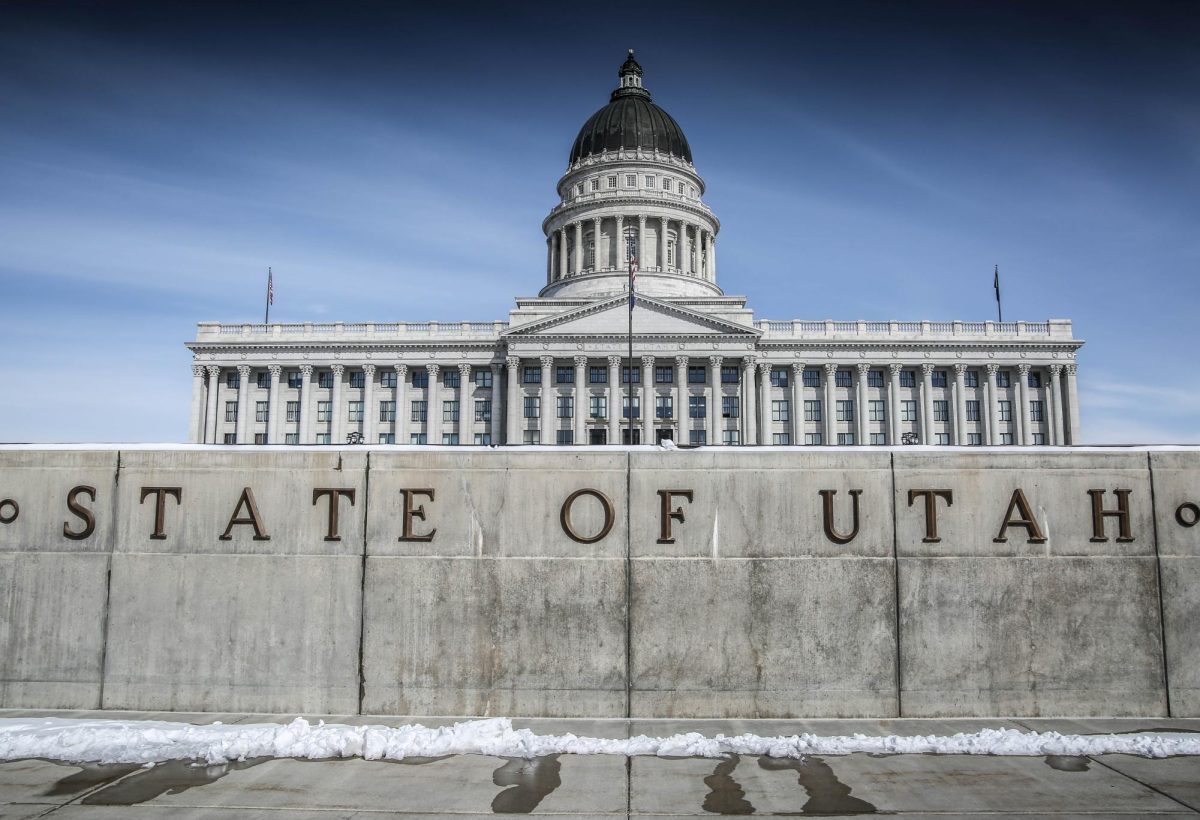Utah’s state representatives and senators returned to the Capitol today for the 2024 legislative session.
Last week, House and Senate Republicans released their priorities for this session, entitled For Utah: A Bold Vision, A Brighter Future, and Utahns First: Sustainability at Every Level.
Among their priorities is another iteration of income tax cuts. The Legislature’s Executive Appropriations Committee has set aside $160 million, and as reported by Deseret News, Utah’s Chief Economist Andrea Wilko has advised them to be cautious after the state’s revenue was $50 million less than expected last year.
The Utah Democratic caucus, which holds six of 29 Senate seats and 14 of 75 House seats has yet to release its detailed priorities, but Senate Democrats posted on Instagram that their plan is to “[fight] for our freedom to be healthy, prosperous, and safe.”
The session is happening against the backdrop of an important election year, and legislators have their eyes on issues that have gained national attention such as diversity, equity and inclusion programs, housing and climate change.
Education
The widely debated topic of DEI programs has garnered significant attention, and the resurgence of the anti-DEI movement among Utah conservatives is often attributed to the recent conflict between the U’s chapter of Mecha and the Center for Equity and Student Belonging.
Rep. Katy Hall (R-South Ogden) and Sen. Keith Grover (R-Provo) have already introduced a bill targeting DEI this session — H.B. 261 prohibits Utah’s public colleges and K-12 schools from soliciting job applicants for statements regarding their beliefs on diversity or inclusion, and violations could result in the loss of state funding.
The challenge of DEI programs has support from Gov. Spencer Cox. At his monthly press conference in December, he said DEI programs were “bordering on evil.”
“I don’t feel like they’re headed in the right direction,” Cox said at the press conference. “They’re much more divisive right now than they are unifying, and we are a pluralistic society.”
In response to the governor’s remarks regarding DEI initiatives last month, University of Utah President Taylor Randall has instructed the university to discontinue the use of diversity statements in hiring.
Climate, Energy, and Water
Energy is a prominent feature of climate conversations in Utah. In their priorities released last week, Senate Republicans said their goal is to “[progress] toward energy independence” in 2024.
While energy is a top priority, the specific actions during the session remain unclear, except for Republicans’ resistance to federal efforts promoting clean energy — continuing a trend of state’s rights advocacy in response to the Biden administration.
They have raised concerns about regulations aiming to close down coal plants, which they say will raise energy prices. In response, House and Senate Democrats have pointed to a legislative audit that suggests the state’s energy development lacks defined goals and requires better planning to meet growing energy demand.
It’s no surprise that water is another important issue to keep an eye on in this session. Even after a record-breaking snowpack last year, the Great Salt Lake continues to dwindle. Last year, many water conservation efforts — including a bill that required golf courses to report water use — failed in the Legislature.
In his Budget Recommendation, Cox directed $81.6 million toward water conservation efforts, which include the Great Salt Lake, water infrastructure and watershed conservation. While many House and Senate Republicans share his priorities, the exact allocation is to be determined by lawmakers during the session.
Air quality is another priority for the Legislature this session. Cox’s budget recommends $47.7 million to be allocated to air quality improvement measures and $74.3 million for transportation.
While Sen. Todd Weiler (R-Woods Cross), Republican Co-Chair of the Legislature’s bipartisan Clean Air Caucus, does not expect much progress on air quality efforts this session, he said the return of the Olympics in 2034 may increase a sense of urgency on Capitol Hill, according to The Salt Lake Tribune.
Housing
Utah legislators have found themselves in a dilemma as they grapple with the conflict between the escalating cost of housing, a consequence of economic growth and the hope to enhance the state’s appeal to families.
Cox presented a budget proposal for 2025 centering on a program aimed at housing affordability — “Utah First Homes.” Under his proposal, the state would build 35,000 affordable starter homes by 2028. While it’s not guaranteed to become law, his proposal may bring future legislation aimed at alleviating the housing affordability crisis this session.
Budget
Cox has proposed a $29.5 billion total operating budget for the 2025 fiscal year — a slight decrease from 2024 due to an economic cooldown, lower-than-expected revenue from last year and the end of COVID-era federal stimulus funding.




Caleb • Jan 17, 2024 at 3:09 pm
Interesting. I know we can always rely on Utah’s Republican supermajority to do the right thing.